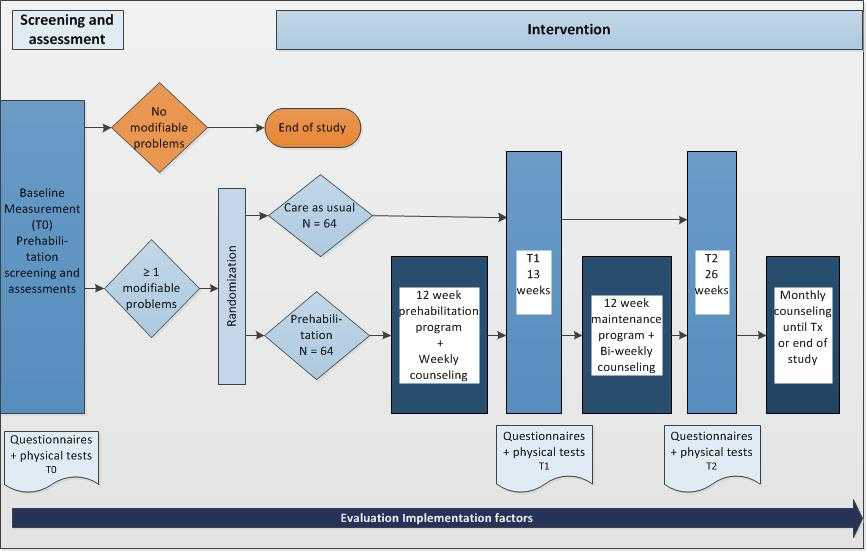Prehabilitation of candidates for renal transplantation (PreCareTx): a hybrid study
Evelien Quint1, Avril Haanstra3, Yvonne van der Veen2, Heleen Maring3, Adelita Ranchor3, Evelyn Finnema3, Stefan Berger2, Stephan Bakker2, Robert A. Pol1, Coby Annema3.
1Surgery, University Medical Center Groningen, Groningen, Netherlands; 2Nephrology, University Medical Center Groningen , Groningen, Netherlands; 3Health Sciences, University Medical Center Groningen, Groningen, Netherlands
PreCareTx Study Group.
Introduction: It is important for kidney transplant candidates (KTCs) to be in an optimal physical and psychological state prior to kidney transplantation. This is because the patient must be able to handle the stress of the upcoming surgery and withstand post-operative recovery time. However, the health status of KTCs is often compromised due to disease progression, comorbidities, and the adverse effects of dialysis - and is associated with impaired physical fitness, an increased risk of psychological problems, and a lower quality of life. The aforementioned problems are encapsulated within frailty. "Prehabilitation" is an intervention that modulates frailty and enhances the fitness of a patient prior to an operation. It enables the patient to withstand the stress of surgery and may be an effective way to improve the overall wellbeing of KTCs. Prehabilitation focuses on implementing lifestyle changes with the goal to improve pre- and post-transplant outcomes. It comprises physical training, dietary management, and psychological interventions. A multimodal prehabilitation program for KTCs has not been established so far. The PreCareTx project aims to develop, implement, and test a multimodal prehabilitation program in order to elevate the physical and psychological fitness of KTCs and consequently improve their frailty status.
Main objective: To examine the effectiveness of prehabilitation to improve the physical and psychological fitness of KTCs during the waiting-list period and its potential for further implementation in a real-world situation.
Method: A hybrid study design will be utilized, comprised of a randomized controlled trial to test the effectiveness of prehabilitation to improve the frailty status of KTCs and a mixed-methods study to gather information on its potential for further implementation. One hundred and twenty-eight patients with one or more modifiable problem(s) will be randomized to care as usual or prehabilitation. The prehabilitation program will be tailor-made and multimodal in nature, consisting of physical exercise, nutritional plans, and psychosocial support. It will span over the course of twelve weeks and patients will be monitored weekly by a lifestyle coach. The primary endpoint will be change in frailty status. Secondary endpoints include changes in physical activity, nutritional status, psychological fitness, quality of life, and clinical outcomes regarding waitlist mortality, delisting, complications, number of hospital admissions assessed by medical record review until transplantation.

Expected results: We hypothesize that, compared to usual care, a prehabilitation program tailored to individual patients’ needs will improve the overall fitness of kidney transplant candidates. Consequently, this may enable them to better withstand the stress of the transplant surgery which could improve post-transplant outcomes.
